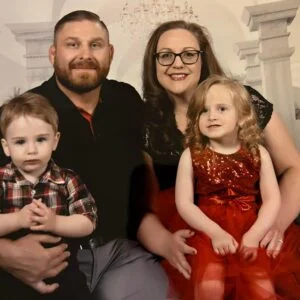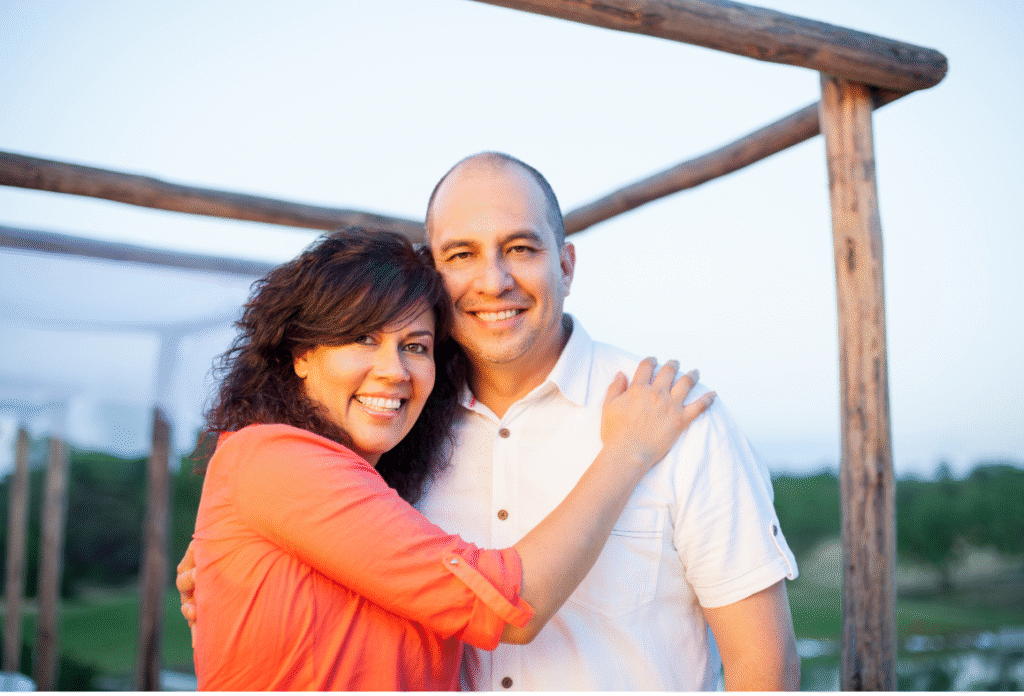Are Your Genes Sabotaging Your Weight Loss? The Truth About Nature, Nurture & Epigenetics


Hey there, friend! Let’s dive into something that totally blew my mind when I first really dug into it: how much our surroundings actually mess with our genes. I know, right? It sounds like something out of a sci-fi movie, but it’s real, and it’s called epigenetics and weight loss, in part because understanding it can be so empowering on that journey.
For years, I thought our genes were like this set-in-stone blueprint. You got what you got from your parents, and that was that. End of story. Turns out, that’s only part of the picture when we consider nature vs nurture weight. Our environment – the food we eat, the air we breathe, even our stress levels – plays a surprisingly huge role in how those genes express themselves. It’s like our environment has little volume knobs and switches for our genes. This is a core concept in understanding how our environment affects genes.
Think about it. We’ve all known identical twins who, despite having the exact same DNA, end up with different health issues or even different personalities as they get older. How does that happen? Epigenetics, my dear. It’s the study of changes in gene expression and health that don’t involve alterations to the underlying DNA sequence. Instead, it’s about these little chemical tags that attach to our DNA and tell our genes whether to be active or silent.
Now, how does this relate to us – to women navigating the world of weight loss, especially weight loss for women over 40, and trying to make peace with our bodies after all those ups and downs, ultimately loving your body after dieting? Well, it’s huge! It means that even if you feel like your family history has dealt you a certain hand – maybe a tendency to gain weight easily or a predisposition to certain health conditions – you have more power than you think. Your daily choices can actually influence how those genes behave, impacting gene expression and health.
Let me tell you a little story. Back in my early nursing days, I worked with a woman, let’s call her Sarah, who had a strong family history of type 2 diabetes. Her mom, her grandma, several aunts and uncles… it seemed almost inevitable for her. She was understandably worried, and honestly, she felt a bit defeated. Like, “What’s the point of even trying?”
But Sarah was also incredibly determined. She started learning about nutrition, focusing on whole, unprocessed foods. This shift in her epigenetic diet and lifestyle was key. She incorporated regular walks into her day, even when she felt tired. And you know what? Years later, Sarah is thriving. Her blood sugar levels are healthy, and she feels fantastic. Now, did her genes magically change? Nope. But what she did change was the environment those genes were living in. Her healthy lifestyle choices likely influenced the epigenetic markers on her genes, dialing down the expression of those diabetes-related tendencies. Pretty powerful stuff, huh? This shows how impactful lifestyle changes gene expression can be.
So, what are some of these environmental factors that can have such a profound impact? Let’s break it down:
Diet: This is a big one, ladies. What we put into our bodies isn’t just fuel; it’s information that talks directly to our genes, influencing diet and gene expression. Think about folate, a B vitamin found in leafy greens. It’s crucial for adding methyl groups to DNA, which can influence gene expression. Studies have shown that dietary components like sulforaphane (found in broccoli sprouts) can affect histone modification, another epigenetic mechanism. It’s like the food we eat can leave little notes on our DNA, telling it what to do within the realm of epigenetic diet and lifestyle.
I remember going through a phase where I was all about those super-restrictive diets. You know the ones – where you’re practically living on air and maybe a lettuce leaf. Not only did they make me miserable, but they also messed with my body in ways I didn’t fully understand then. Now I know that those kinds of extreme fluctuations can actually create a stressful internal environment, potentially leading to negative epigenetic changes over time. It’s all about finding a sustainable, nourishing way of eating, which is a cornerstone of a healthy epigenetic diet and lifestyle.
Stress: Ah, stress. The constant companion for so many of us. Chronic stress floods our bodies with hormones like cortisol, which can have far-reaching effects, including on our epigenetic landscape. Research has linked early life stress to changes in DNA methylation patterns, which can even be passed down to future generations. It’s a sobering thought, isn’t it, especially when we consider stress and epigenetics?
I’ve definitely been there, juggling work, family, and all the other things life throws our way. There were times when I felt like I was constantly running on fumes. Looking back, I can see how that constant state of stress probably wasn’t doing my body – or my genes – any favors. Finding healthy ways to manage stress, whether it’s through mindfulness, yoga, spending time in nature (hello, nature’s nurture!), or just carving out a few moments of quiet for yourself, isn’t just about feeling better in the moment. It’s actually impacting your genes on a fundamental level, influencing gene expression and health.
Toxins: We’re constantly bombarded with toxins and gene health concerns in our environment – from air pollution to chemicals in household products. These exposures can also leave their mark on our epigenome. For example, studies have shown that exposure to certain heavy metals can alter DNA methylation patterns. While we can’t always control the external environment completely, we can make conscious choices to minimize our exposure where possible, like choosing organic produce when we can, opting for natural cleaning products, and ensuring good ventilation in our homes. Every little bit helps in supporting healthy gene expression and health.
Physical Activity: Movement isn’t just about burning calories; it’s another powerful way we communicate with our genes. Exercise has been shown to influence DNA methylation and histone modification, potentially contributing to the beneficial effects of physical activity on our overall health and even our mental well-being. I’ve always felt a huge difference in my energy levels and mood when I make time for regular movement, even if it’s just a brisk walk. It’s like my body – and my genes – are saying, “Yes, more of this please!” This is another key aspect of lifestyle changes gene expression.
Sleep: Oh, glorious sleep! It’s not just about feeling rested; it’s a crucial time for our bodies to repair and regenerate. Emerging research suggests that sleep can also influence our epigenome. Disrupted sleep patterns have been linked to alterations in DNA methylation. I know how tempting it is to skimp on sleep, especially when life feels overwhelming, but prioritizing those Zzz’s is a non-negotiable for our long-term health and the health of our genes. This is all part of nurturing healthy gene expression and health.
So, what does all this mean for you, my friend, on your journey to loving your body after dieting and finding a sustainable approach to well-being? It means you have incredible agency. Even if you feel like your genes have set you up for a particular path, your daily choices have the power to influence that path, especially when we consider epigenetics and weight loss.
Here are a few practical things we can focus on to support positive lifestyle changes gene expression:
It’s truly empowering to understand that our genes aren’t our destiny. They’re more like a starting point, and our lifestyle choices write the ongoing story. This isn’t about blaming ourselves for past choices or feeling guilty; it’s about recognizing the incredible power we have in the present moment to shape our future health and well-being, especially in the context of epigenetics and weight loss. It’s about understanding that nature gives us the foundation, but nurture – our environment and our choices – has a profound and ongoing conversation with our very being at a genetic level, influencing our gene expression and health and our journey towards loving your body after dieting.
Feeling inspired and ready to take even more control of your well-being? If this deep dive into the fascinating world of epigenetics has sparked your curiosity and you’re looking for personalized guidance to navigate your health journey, I’m here to help. As a registered nurse with a passion for empowering women to love their bodies and achieve sustainable well-being, especially those navigating weight loss for women over 40, I offer one-on-one health coaching services. Together, we can explore your unique needs and create a tailored plan that incorporates these powerful epigenetic principles, helping you make informed choices that nourish your body and support your long-term health goals. Let’s connect and explore how we can work together to unlock your full potential.

Join me on my journey to a healthier lifestyle
If you’re tired of the endless cycle of dieting and conflicting health advice, feeling overwhelmed and longing to truly understand how to nourish your body and feel good in your own skin like I did, you’re in the right place. Through my blog, I share insights on weight loss, mindset, neuroplasticity, nutrition, and self-care to empower you on your wellness journey. Whether you’re seeking personalized guidance to address specific health challenges or you’re ready to break free from restrictive diets and embrace body acceptance while achieving sustainable weight loss, I offer coaching programs designed to help you cultivate lasting health and body confidence. Ready to explore a different path?

One-on-one sessions tailored to your health history, goals, and lifestyle—rooted in nursing expertise and current wellness science.
Guided coaching to help reframe limiting beliefs around food, body image, and health—so you stop sabotaging your progress.
Practical tools, customized strategies, and compassionate support to help you take consistent, manageable steps forward.
“Working with Rebecca completely shifted my mindset.”
I had tried everything—diets, workout programs, you name it—but nothing ever stuck. Rebecca showed me how to reframe my beliefs about food and my body. I’m losing weight without trying to lose weight!

“I finally feel in control of my health for the first time in years.”
Rebecca didn’t just focus on my symptoms—she really listened to my story and helped me understand the root of my challenges. Her guidance was practical and tailored to me, and now I feel empowered to make choices that support my health every day.

“Rebecca’s support made all the difference.”
Having someone who understands both the medical side and the emotional side of health was a game-changer for me. Rebecca provided me with actionable steps, encouragement, and accountability every step of the way. I can’t recommend her coaching enough!

Book a no-pressure session where we’ll talk about your health goals, struggles, and what’s been holding you back. You’ll walk away with clarity—even if you don’t sign up.
Based on your unique history and needs, I’ll create a personalized plan—no generic advice here. You’ll get clear next steps, ongoing support, and a roadmap that fits your life.
With consistent guidance and mindset shifts, you’ll feel more in control of your health, more confident in your choices, and more connected to the person in the mirror.

Personalized 60-minute sessions tailored to your unique health goals, lifestyle, and challenges.

A roadmap designed just for you—no generic advice, just focused guidance based on your needs and medical background.

Worksheets, journaling prompts, and reflection exercises to help you stay mindful and motivated between sessions.

We’ll track what matters most to you—from energy to mindset to symptom relief—so you can see real growth.

Break free from old patterns and build new habits with a focus on lasting behavior change—not quick fixes.

Stay connected with check-ins and direct access to me for questions, encouragement, and clarity when you need it.
You don’t have to figure it out alone. Whether you’re managing a chronic condition or tired of the constant struggle with weight and self-doubt, support is here.